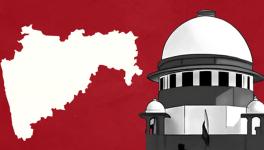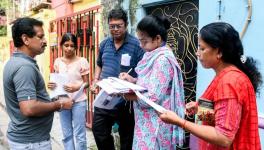Internet Shutdown After Geelani’s death Violated SC Order?
The death of Hurriyat leader Syed Ali Shah Geelani in Srinagar on Wednesday was followed by a communications blockade, including an Internet shutdown, and severe restrictions on the movement of civilians in the Union Territory (UT).
As Geelani’s family alleged that his body was forcibly taken by the police for burial in anticipation of mass protests, most entry points leading to the city were cordoned off by barbed wires and the Internet was shut down. The situation was eerily similar to the restrictions imposed following the suspension of Article 370 on August 5, 2019.
According to the Internet shutdowns tracker maintained by
Delhi-based digital rights non-profit Software Freedom Law Center (SFLC), the Internet in the UT has been shut down 315 times till date with the longest blackout for around 179 days.
In January 2020, the Internet was partially restored after 158 days on the Supreme Court’s directives following pleas submitted the editor of Kashmir Times Anuradha Bhasin, Congress leader Ghulam Nabi Azad, CPI(M) general secretary Sitaram Yehury and others challenging the communication blockade.
Ordering the restoration of all government and local body websites and Internet services in institutions providing essential services on January 10, the apex court said: “Freedom of expression and carrying on trade through the Internet is protected under Article 19(1) of the Constitution and can be restricted only under the reasons given in Article 19(2) of the Constitution.”
One significant part of the judgment was the publication of Internet shutdown orders. The court ordered that the State has to publish all orders in force under Section 144 of the Code of Criminal Procedure as well as the Temporary Suspension of Telecom Services (Public Emergency or Public Safety) Rules, 2017, so there is a scope of judicial review.
Observing that Article 19 mandates right to information as an important facet of the right to freedom of speech and expression, the court said: “A democracy which is sworn to transparency and accountability necessarily mandates the production of orders as it is the right of an individual to know.” The government cannot “take away these rights in an implied fashion or in a casual and cavalier manner”, the court added.
Stressing that a democracy “entails the free flow of information”, the court further observed: “There is not only a normative expectation under the Constitution but also a requirement under natural law that no law should be passed in a clandestine manner.” The court also directed that any order that impacts the life, liberty, and property of people should be made available.
Furthermore, the court also made a few observations on the appropriateness of such harsh measures. The appropriateness of such measures depends on their necessity and the implications on the fundamental rights, the court observed, adding that they should be supported by sufficient material and amenable to judicial review.
According to Prasanth Sugathan, legal director, SFLC, “Internet shutdown orders were mostly not published until Anuradha Bhasin filed the plea in the Supreme Court. SFLC had filed several Right to Information applications to obtain orders of such shutdowns passed by various states. Only a few states provided the information.”
However, according to sflc.in, the last such order was published on May 18 with several blackouts reported after that date. Sugathan told Newsclick that some orders were published by the Jammu and Kashmir administration following the judgement. “However, we have recorded several shutdowns whose orders were never published,” he said.
The authorities deliberately delay the publication of executive orders in cases of Internet shutdowns that last for 24-48 hours. By the time the aggrieved parties seek legal recourse to challenge these orders, the cause of action dies as happened with the shutdowns during the farmers’ protests at Tikri, Gazipur, and Singhu.
Apart from affecting the economy, health care and education, Internet shutdowns also create a fear psychosis in the minds of citizens. A report released by Top10VPN.com in January found that India has been in the top three nations impacted financially by Internet shutdowns since 2019 taking the maximum hit at $2.8 billion in 2020.
Get the latest reports & analysis with people's perspective on Protests, movements & deep analytical videos, discussions of the current affairs in your Telegram app. Subscribe to NewsClick's Telegram channel & get Real-Time updates on stories, as they get published on our website.
























